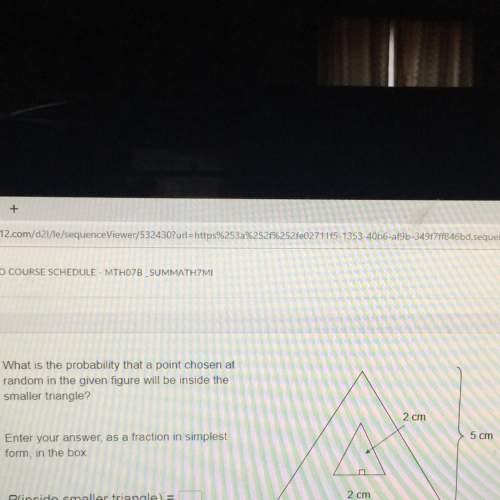If the function f has a continuous derivative on [0,c], the the integral(o to
c. of f'(x)dx=<...

Mathematics, 03.02.2020 04:05 raiindrxp
If the function f has a continuous derivative on [0,c], the the integral(o to
c. of f'(x)dx=
a. f(
c.-f(0)
b. absolute value (f(
c.- f(0))
c. f(
c.
d. f'(x)=c
e. f"(
c.-f"(0) my work: so the the answer to the integral is f(x) and when find the answer from o t0 c, it is f(
c.-f(0).
is that the right answer? i'm confused because is there anything i have to do with the point [0,
c. or is that unneccessary info.
problem #2: let f be a polynomial function with degree greater than 2. if a does not equal b and f(
a.=f(
b.=1, which of the following must be true for atleast one value of x between a and b?
i)f(x)=0 ii)f'(x)=0 iii)f"(x)=0 you can choose more than one choice in the choices mentioned of i, ii, iii
i'm having trouble coming up with the equation and choosing a and b
the correct answer to (#1) is f(
c.-f(0). that is because the definite integral of a function (
f. is the difference between the indefinite integral (
f. evaluated at the two limits of integration.
the correct answer to (#2) is f'(x) = 0. imagine all possible continuous curves you can draw from a to b, going though f = 1 at both points. the curve must have zero slope somewhere. there is no requirement that f or f'' be zero at intermediate points. you don't need an equation to prove this. you just need to invoke the mean value theorem

Answers: 2


Another question on Mathematics

Mathematics, 21.06.2019 19:30
Select the margin of error that corresponds to the sample mean that corresponds to each population: a population mean of 25, a standard deviation of 2.5, and margin of error of 5%
Answers: 2

Mathematics, 21.06.2019 22:10
On a piece of paper, graph y< x-1. then determine which answer choicematches the graph you drew.13. z3. 2(3.290-1)
Answers: 2


Mathematics, 21.06.2019 23:00
If you apply the changes below to the linear parent function f(x)=x what is the equation of the new function vertically stretched by a factor of 3 flip over the x axis
Answers: 2
You know the right answer?
Questions




Mathematics, 20.07.2019 13:00




English, 20.07.2019 13:00



History, 20.07.2019 13:00


English, 20.07.2019 13:00





Spanish, 20.07.2019 13:00

English, 20.07.2019 13:00

Chemistry, 20.07.2019 13:00




